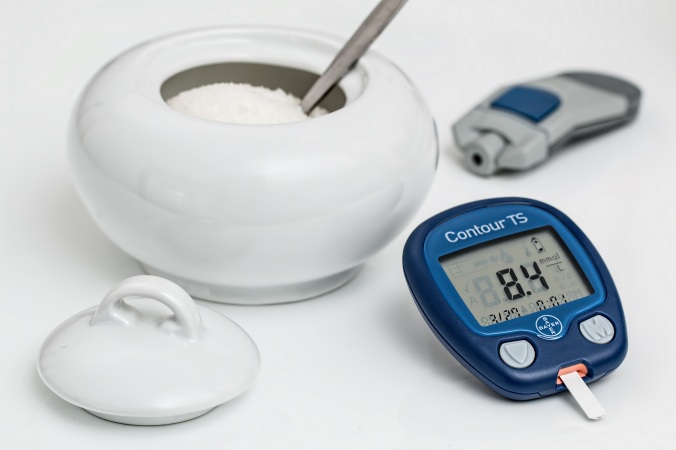In conventional psychiatry treatment decisions are generally based on what is known as the monoamine hypothesis. The monoamine hypothesis suggests that depression and most other mental health concerns are based upon imbalances or abnormalities with serotonin, dopamine, norepinephrine, and epinephrine. The vast majority of psychiatric medications are predicated on this hypothesis and theoretically modulate the concentrations or availability of these neurotransmitters. Questions arise however given that many patients have no response and some may actually develop worsening symptoms. In many ways this hypothesis along with our fragmented medical model has us convinced that somehow the mind and the body continue to be separate from one another.
However, depression is not just in your head. It is important that we treat depression and other mental health concerns with the whole body in mind. The same symptoms that may qualify you for a clinical diagnosis of major depressive disorder and trial of an antidepressant may be the same symptoms that may also qualify you for hypothyroidism or another “non-psychiatric” condition.
ENTER FUNCTIONAL MEDICINE. For a great introduction of functional medicine, please watch one of the primary founders, Dr Mark Hyman discuss below:
The following is a sampling of “non-psychiatric” factors that can cause depressive symptoms and in an ideal world, should be considered prior to treatment decisions being made.
1) Nutrition: Nutritional deficiencies or an excess of processed foods, refined carbohydrates, and sugar are huge drivers of emotional imbalance. Omega-3 fatty acids, iron, B vitamins, Vitamin D, amino acids, zinc, selenium, iodine, and magnesium all work to support emotional wellness and given our Standard American Diet, are frequently at deficient levels. As we age, we are even more susceptible to nutrient deficiencies as our ability to absorb adequate levels of vitamins such as Vitamin B12 declines. Nutrition also plays a significant role in supporting gut health and as we have discussed before, your gut is your second brain, and it’s health is paramount.

2) Lack of exercise: Please get up and move. Please take a break from your screen. Our bodies are not meant to be sedentary all day. In a study completed by The American Journal of Preventative Medicine, women aged 50-55 were 47% more likely to be depressed if they sat for more than 7 hours daily compared to women who sat less than 4 hours/day. In women that did not exercise at all, they were 99% more likely to be depressed. Now that is a statistic!

3) Lack of sunshine: Anybody else live in the Pacific Northwest? Winters can be especially brutal. Rain, rain, go away…and then we sit in our office, go home when it is dark, and then return to work the next day before the sun comes up. Vitamin D, synthesized with the help of the sun and incredibly important for our whole-body wellness, can be at sparse levels for many of us. So soak up the sun when you can and consider a SAD lamp if the sun just is not shining.

4) Hormones: Hormones are HUGE when considering depression. Hormones are our body’s messengers and interface with every system in our body. If they are imbalanced, the wrong messages can be sent or the message won’t be sent at all and things feel out of sort emotionally and physically. Hormone related disorders that can emulate depression include thyroid dysfunction, insulin resistance (diabetes), low testosterone, estrogen/progesterone imbalance, adrenal dysfunction, and pituitary dysfunction.

5) Infection & Autoimmune conditions: Both viral and bacterial infections can certainly cause depressive symptoms. How many of you felt chipper when you had the flu? Chronic infections such as Lyme disease, Epstein-Barr virus, viral hepatitis, and AIDS among others can all perpetuate depression. Autoimmune conditions such as Celiac disease, rheumatoid arthritis, systemic lupus erythematosus, and autoimmune thyroid dysfunction (Hashimoto’s & Grave’s disease) can also cause serious disruptions to emotional wellness.

6) Drugs (Pharmaceuticals and otherwise): Unfortunately, some of the very same medications we use for “stabilizing” mental health can also cause depressive symptoms. Anti-psychotics, benzodiazepines, and even antidepressants can worsen mood in some cases. Opioids, amphetamines, and alcohol can also cause significant depressive symptoms.

7) Stress: This should not come as a surprise, but just in case you needed a reminder. In our society, high levels of stress are rampant. Stress impacts our whole body in a multitude of ways and when chronic, can certainly drive depression. In such cases, we need to ask ourselves what can be changed or modified- whether it be changing the situation or perhaps how we perceive the situation.

Again, these factors are a SAMPLING, but they serve as major reasons why mental health concerns need to be viewed from a broader lens. Functional medicine, which we specialize in at She Soars Psychiatry is dedicated to an upstream model of medicine that seeks to identify root causes, leading to far more sustainable results and a more empowering experience for you.
At She Soars Psychiatry, LLC, we are committed to approaching your emotional wellness from all angles. From our perspective, it can be considered negligent to not assess all factors when possible. Visit our website, www.shesoarspsych.com for more information about our services and mission.